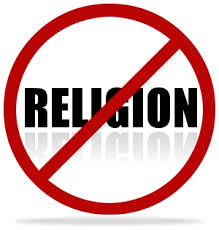One-Fifth of Population Claims No Religious Affiliation

People who say they are unaffiliated with any religion constitute nearly 20 percent of the American public, making them almost as numerous as Catholics, who accounted for 22 percent of participants in a new Pew Research Center study released Oct. 9.
The survey of 2,973 adults conducted this summer found people who say they are atheist, agnostic or “nothing in particular” grew by almost 5 percentage points since 2007, from 15.3 percent to 19.6 percent of the population.
“These are not necessarily non-believers,” said Greg Smith, senior researcher for the Pew Forum on Religion & Public Life, at an Oct. 9 discussion on the study hosted by “Religion & Ethics Newsweekly,” a PBS TV show. “They’re just not associated with any faith in particular.”
The religiously unaffiliated tend to be younger than the general public, the survey showed, with 35 percent between ages 18 and 29, and 37 percent ages 30-49. Of the general public, about 22 percent are between 18 and 29, and 35 percent between 30 and 49.
Kim Lawton, managing editor for “Religion & Ethics Newsweekly,” said although the study shows that the vast majority of Americans still are affiliated with a faith, the report stands out for the rapid growth it shows in the unaffiliated segment.
The program planned a three-week series on the study starting Oct. 12. The study found declines since 2007 of 1 percent among those who say they are Catholic, 3 percent among white mainline churches, 2 percent among white evangelical churches and no change among black Protestants, Mormons or Orthodox.
Those who said they identify with “another faith” grew throughout the five-year period, from 4 percent to 6 percent of the survey.
Only 2.4 percent of the unaffiliated category described themselves as atheist, and just 3.3 percent said they are agnostic.
The majority in the category—13.9 percent of the total survey—described themselves as nothing in particular.

 Print
Print